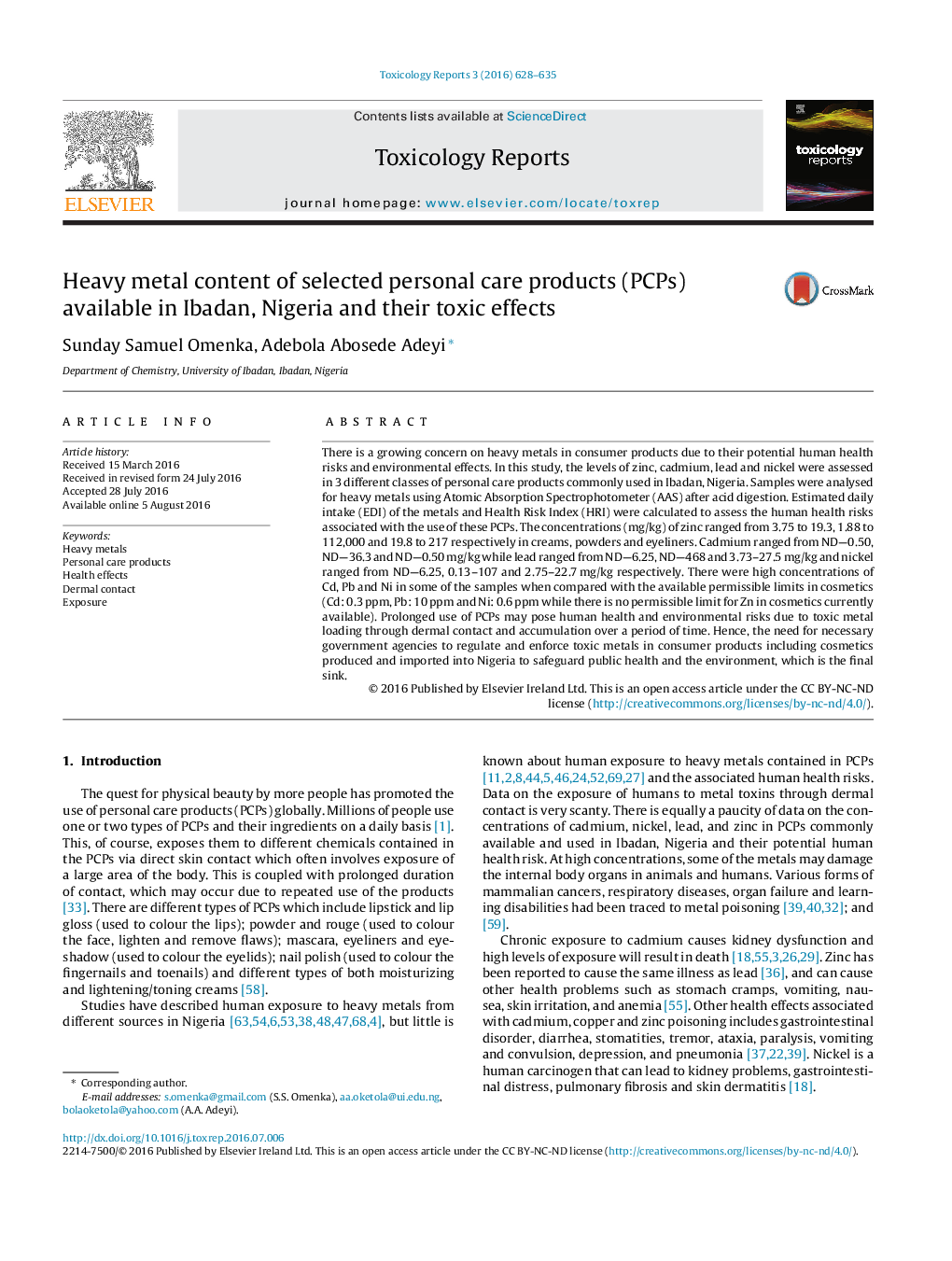| Article ID | Journal | Published Year | Pages | File Type |
|---|---|---|---|---|
| 2572172 | Toxicology Reports | 2016 | 8 Pages |
There is a growing concern on heavy metals in consumer products due to their potential human health risks and environmental effects. In this study, the levels of zinc, cadmium, lead and nickel were assessed in 3 different classes of personal care products commonly used in Ibadan, Nigeria. Samples were analysed for heavy metals using Atomic Absorption Spectrophotometer (AAS) after acid digestion. Estimated daily intake (EDI) of the metals and Health Risk Index (HRI) were calculated to assess the human health risks associated with the use of these PCPs. The concentrations (mg/kg) of zinc ranged from 3.75 to 19.3, 1.88 to 112,000 and 19.8 to 217 respectively in creams, powders and eyeliners. Cadmium ranged from ND—0.50, ND—36.3 and ND—0.50 mg/kg while lead ranged from ND—6.25, ND—468 and 3.73–27.5 mg/kg and nickel ranged from ND—6.25, 0.13–107 and 2.75–22.7 mg/kg respectively. There were high concentrations of Cd, Pb and Ni in some of the samples when compared with the available permissible limits in cosmetics (Cd: 0.3 ppm, Pb: 10 ppm and Ni: 0.6 ppm while there is no permissible limit for Zn in cosmetics currently available). Prolonged use of PCPs may pose human health and environmental risks due to toxic metal loading through dermal contact and accumulation over a period of time. Hence, the need for necessary government agencies to regulate and enforce toxic metals in consumer products including cosmetics produced and imported into Nigeria to safeguard public health and the environment, which is the final sink.
